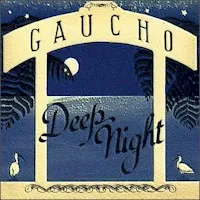Styles: Jazz
File: MP3@320K/s
Time: 52:29
Size: 121,6 MB
Art: Front
(9:33) 1. Theme for Flotus
(9:27) 2. Tu Wero Nui
(5:13) 3. Log Jammin
(4:30) 4. There You Go
(4:55) 5. Afro Blue
(4:33) 6. Caravan
(7:58) 7. Rockin and Rhthym
(6:15) 8. Avalon
The gigless times of 2020 the year of the Covid-19 pandemic could have brought musicians and the industry to their collective knees, gasping for air. Instead, it resulted in more new music than ever before. It filled our lungs with fresh air. It filled our hearts and souls, not to mention our ears. New businesses opening, defying the odds and pursuing their dreams, is a relevant factor. Le Coq Records, emerging in 2020, boldly presents an all-star ensemble featuring many of the world's finest jazz musicians as its virgin voyage on the jazz scene. Someone once said, "Go big or go home." The anonymous quote was not lost on owner and founder Piero Pata. He wisely didn't micro-manage, instead letting the cats do their thing, and allowing it to come together in an organic manner.
Legendary drummer Vinnie Colaiuta heads a big and notable cast. He also plays his ass off! Pianists John Beasley and Bill Cunliffe both play and contribute compositions to the project. Saxophonists Bob Sheppard, Brandon Fields, and Ralph Moore, drummers Marvin "Smitty" Smith and Joe Labarbera, trumpeters Terell Stafford and Wayne Bergeron, bassist John Patitucci, percussionist Alex Acuña, and guitarist Jake Langley are among the powerhouse stable of thoroughbreds. Incorporating a nice mix of originals and timeless classics, the latter included two big bites from the Duke Ellington collection. "Rockin' and Rhythm" and "Caravan" are both brightly arranged by Cunliffe. Andy James provided the lone vocal on the outing, with a reminiscent-of-the-era sound on "Caravan."
The performance was culled from a series of "live in the studio" shows. The band starts in on the music with a sustained groove that intermittently packs a wallop in "Theme for Flotus." A loose and relaxed feel pervades, centered around a very tight Colaiuta and Patitucci pocket. The Beasley-penned composition was first performed at the White House in 2016 as part of International Jazz Day's segment, Jazz at the White House. The closing number, on that night, "Theme for Flotus" was written for, and in honor of, Michelle Obama. On this night it created quite the forum for Colaiuta to play freely and creatively.
In truth, creative expression is to be found throughout this performance and is the backbone of the record. "Tu Wero Nui" and "There You Go" are both Cunliffe originals. They are prime examples of tunes being written and arranged with horn section freedom in mind. They draft the improvisational axis in a full, yet deftly controlled, spin. Patitucci and Acuna are alone on center stage for a duet on "Afro Blue." Patitucci's arrangement of the Mongo Santamaria composition encouraged freedom of expression. Consequently, Acuna and Patitucci engage in a conversation of depth and richness.
Perhaps best know for his work with Joey DeFrancesco, guitarist Langley wields his axe sharply on his written contribution to the collaboration. "Log Jammin'" has the upswing the title would imply, as well as a soulful growl uncaged from Langley's jazz vibe collection. The operation is deftly driven at a steady and controlled pace by "Smitty" Smith, while Beasley's Fender Rhodes counterpoints were the perfect compliments to Langley's leads.
The record closes with a bouncy and, most importantly, respectful, arrangement by saxophonist Rick Margitza, of the Al Jolson co-write "Avalon." A classy tip of the hat to jazz history that was presented with a fresh coat of paint that in no way tarnishes its vintage luster. Le Coq puts themselves on the map by both being passionate enough to put a project of this magnitude together their first time out, and for trusting the all-star personnel to pull it off. Referring to it as "Volume One" also insinuates that there will be a "Volume Two." Having a little confidence is a good thing. ~Jim Worsley https://www.allaboutjazz.com/the-jazz-all-stars-volume-1-the-jazz-all-stars-le-coq-records
Personnel: Vinnie Colaiuta: drums; John Beasley: piano; Bill Cunliffe: piano; John Patitucci: bass, acoustic; Marvin "Smitty" Smith: drums; Alex Acuña: drums; Jake Langley: guitar; Terell Stafford: trumpet; Wayne Bergeron: trumpet; Brandon Fields: saxophone; Bob Sheppard: saxophone, tenor; Chris Colangelo: bass; Ralph Moore: saxophone; Rick Margitza: saxophone, tenor; Rich Eames: piano; Michael Dease: trombone; Charles McNeal: saxophone, alto; Kye Palmer: trumpet; Adam Schroeder: saxophone, baritone; Bob McChesney: trombone.
The Jazz All Stars Album Vol.1




